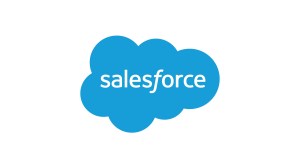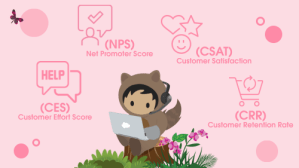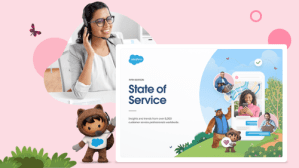How Online Self-Service Enhances Customer Experience & Efficiency



For any business, building a community through self-service channels is essential for growth. Here's why we need them to improve customer satisfaction and brand loyalty matter

Salesforce India
How can a business bring all stakeholders together to exchange ideas and information and extend support? Self-service online communities can offer a way.
Today, online communities have emerged as an efficient and effective way for organisations to bring people together for a shared purpose or goal. By connecting people with similar interests or requirements – such as partners, employees, or customers – brands let them build strong connections by interacting freely, sharing ideas, and answering questions.
Plus, a brand-owned online community can be an efficient self-service channel, offering self-service tools such as Q&A forums, knowledge bases, tutorials, and blogs. Forums have, in this way, become places to seek vital information and critical support, creating virtual groups emotionally invested in the respective brands.
The different types of self-service online communities
From a Quora thread, where customers, experts, and brand spokespeople answer questions posed by prospects, to brand-owned customer service and troubleshooting forums, the online community domain covers the full spectrum. However, it is majorly divided into three categories:
Customer service community
Customer service communities are online spaces that provide customers with easy solutions to their general issues related to a product or service. Customers can also self-serve on these portals. Some examples include checking and making changes to orders, tracking order status, updating accounts, learning about new releases and so on.
Such a self-service portal usually includes a Knowledge Base with frequently asked questions and how-to articles, downloadable user guides, and so on, helping users to locate answers independently. In case the customer faces a difficulty, chatbots and human service reps pitch in via live chat facilities.
JSW Steel, for instance, has created a self-service platform that lets customers easily track their orders in real-time, shipment status, ledger information, MoUs, and other information.
Even educational institutions have jumped on the bandwagon. Pune’s FLAME University has created a student community portal that serves as the initial point of contact for potential students to engage with the university, learn about offered programs and submit their applications. It also lets current students connect with one another, work together on assignments and facilitate quick project completion and learning.
Companies can also open up such self-service forums to enable free-flowing conversations between customers, letting them resolve common problems on their own. When customers engage with one another, they can quickly and easily find the assistance they require without speaking to a customer service representative or contacting the brand’s customer support centre.
The platform can also act as a forum where people can share their thoughts, allowing brands to gauge how the target audience feels about the product and brand.
Partner community
A partner community is a specialised information centre for B2B organisations, enabling sales teams and resellers to quickly obtain necessary data and work together in real-time to clinch more deals. It is a platform where partners can run their businesses, learn industry best practices, and obtain the brand assistance they require.
Leading auto manufacturer Mahindra & Mahindra has created a robust online community for its dealers to help them monitor customer data, nurture leads, handle inquiries, and more, enabling them to deliver more value to customers. The dealer portal enabled seamless handing over of leads from service reps to dealer sales consultants, reducing the lead response time by 50%.
Employee community
An online employee community can serve as a platform to inspire, educate and inform employees. Employees can connect with one another, with HR and IT teams, and access shared files, knowledge databases, training materials, schedules, and organisational paperwork or announcements. This virtual environment not only brings together all staff members but also helps streamline procedures, such as those related to remote work.
Systems integrator ABSYZ leverages a feature-rich employee intranet to help employees manage all data and processes from hiring to exit, upskill themselves and increase internal collaboration. For the company itself, the intranet is a means to evaluate personnel, manage timesheets and expenses, conduct training, and measure employee productivity.
Benefits that online communities offer all stakeholders
Online self-help communities are vital in enhancing the customer journey and brand trust, making them integral to brand growth and popularity. For an organisation, the advantages of building a community for customers include:
- Building enthusiasm around a company’s brand.
- Saving employee time spent on answering routine questions
- Reducing support costs
- Enhancing customer satisfaction and brand loyalty
- Building customer advocacy and increasing retention
- Getting honest feedback
- Monitoring channel performance across functions like sales
- Monitoring, tracking and optimising partner performance to help them streamline operations and access more revenue
For customers, accessing an online portal is an easy and effective way to complete actions and tasks without depending on company reps. Plus, access to a shared online space means a quicker resolution of their questions and concerns and being a part of a peer-to-peer support group. The presence of an online community eliminates the need to spend hours searching online for information that is almost certainly covered in a forum thread. Or even better, the customer can get the answer directly from a member of that group.
For partners, a community can turn into a virtual workspace where organisations can share up-to-date project information, track status of sales and project fulfilment/completion. Plus, work can be tracked within such partner communities, making it simple to generate project metrics.
When it comes to employees, an online community offers a platform for streamlining operations and accessing resources, enabling them to become more efficient and do quality work. Furthermore online communities foster a growth mindset and enable a culture of cooperation, sharing and interaction amongst teams.
So why don’t all businesses have online communities?
While most companies recognise the value of having a strong self-service online community, they find it challenging to implement it successfully and turn it into an automated, process driven ecosystem.
In a nutshell, the usual challenges that companies face include:
- Lack of IT expertise
- Lack of an easy-to-use community engagement platform
- Lack of sustained customer engagement strategies
- Concerns around data security
Salesforce Experience Cloud: Fuelling self-service communities
Salesforce Experience Cloud is an easy-to-deploy digital experience platform that enables brands to build sites, portals, and forums faster than ever. You can use Experience Cloud to create a self-service community to increase customer engagement and help reduce pressure on customer service and support teams. Or to create a personalised portal where business users can securely access data and act on it.
Simply put, Experience Cloud enables your brand to link customers, partners, and employees with each other as well as with the information and documents they require to complete their tasks. Highly innovative and feature-rich, the platform delivers the flexibility to share any file, data, or record anywhere and on any mobile device.
Key features like pre-built templates and drag-and-drop components let you manage content, add colour and design that match your brand, and tailor your experience to a wide variety of audiences. Experience Cloud allows you to create custom components and themes and even access pre-built components and solutions on AppExchange.
Additionally, by building the digital experience on Salesforce, your company can extend their CRM to everyone in the community. Customers, partners, and employees can all access the data in your Salesforce CRM, creating a single source of truth for stronger relationships. You can select the kind of information to display for each category of community user, ensuring ease of access in a secure and scalable manner. Plus, Experience Cloud enables your company to embed any third-party system and data or custom apps into the community, letting you create a truly unique community portal.
Want to learn more?
Facilitate quick and easy information access for all your stakeholders. Try Salesforce Experience Cloud today.























